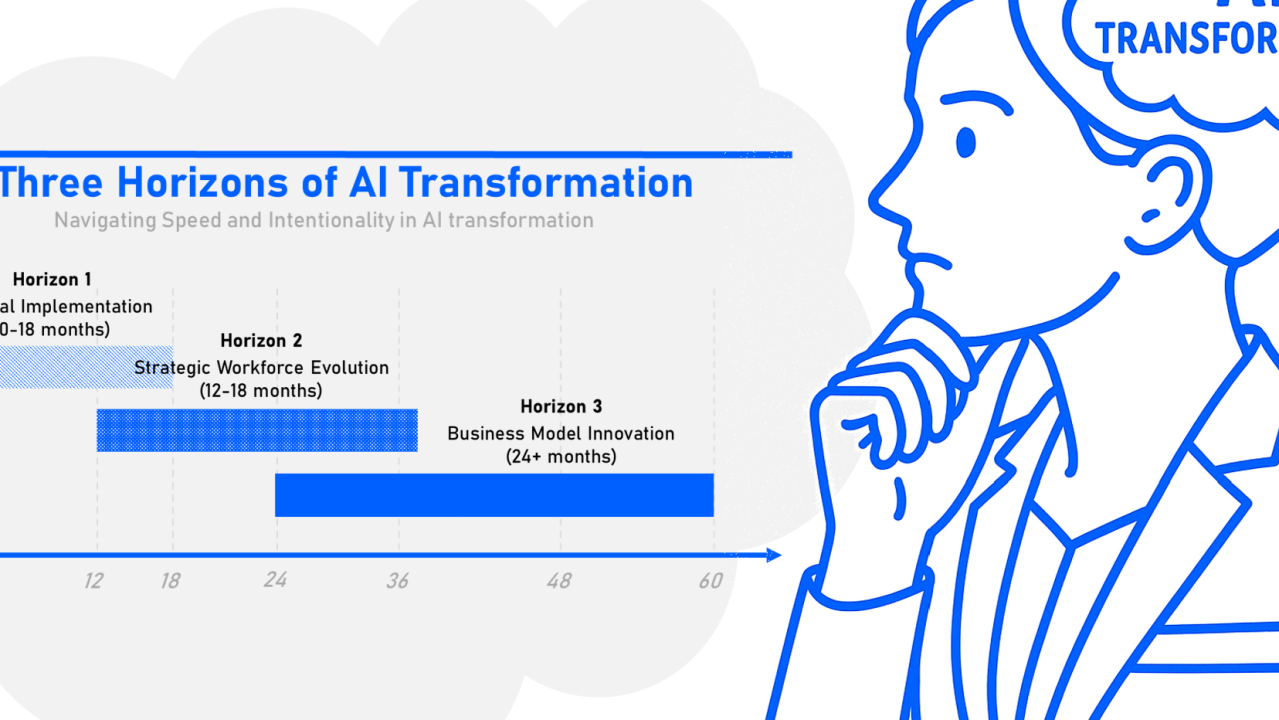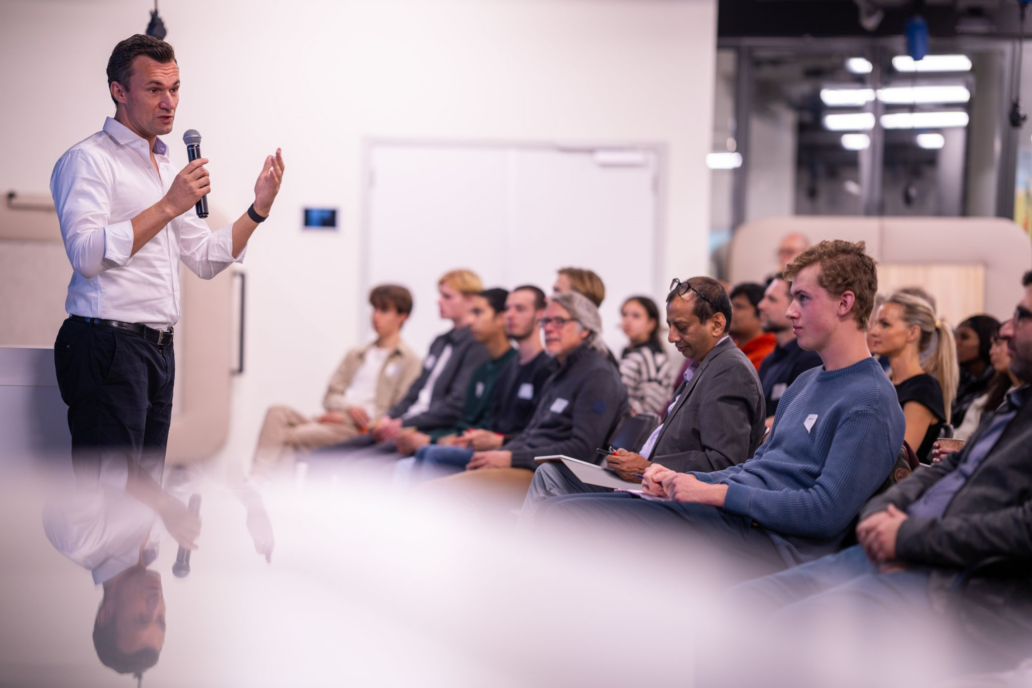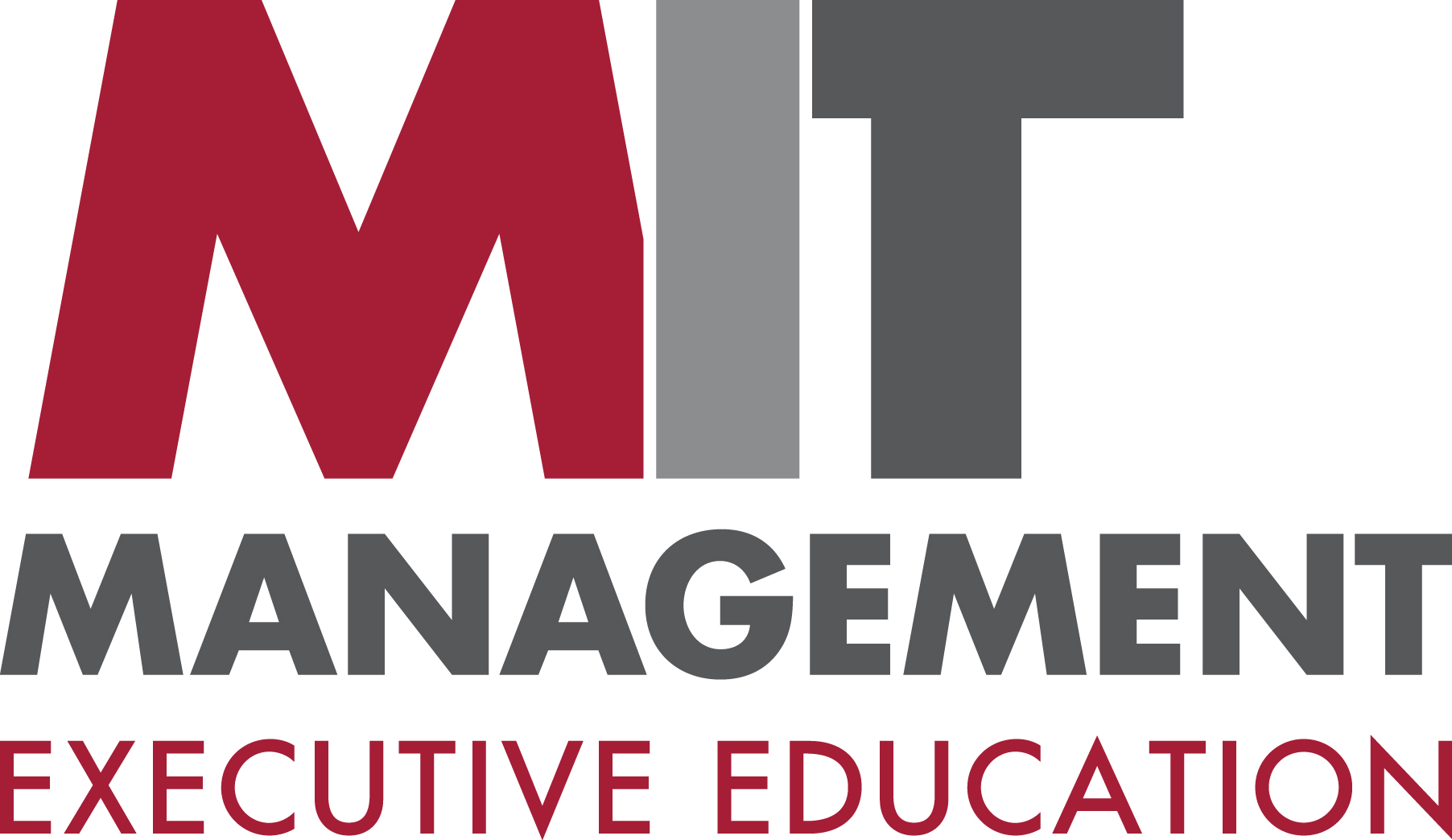
The Three Horizons of AI Transformation: A Roadmap for Strategic Accelerators (Part 2 of 3)
A roadmap for strategic accelerators, detailing the three horizons of AI transformation from tactical implementation to systemic business model innovation.

Join Professor René Bohnsack, PhD, for exclusive insights and transformative strategies in AI-driven innovation and sustainability.
Dr. René Bohnsack is a globally recognized academic-entrepreneur who bridges cutting-edge research and practical innovation to empower entrepreneurs and corporations shape deep tech ecosystems.
Through AI-driven tools, sustainable business models, and a commitment to diversity, he drives transformative impact in digital, clean, and life science technologies.






"Rene's sessions brought real clarity to our cohort. The tools and frameworks he shared were not just insightful but actionable – and the feedback from participants exceptionally appreciative. A great experience for any organization aiming to equip entrepreneurs with practical, future-ready capabilities.
"Absolutely fascinating. This was one of the most thought-provoking sessions I've attended. It gave me practical tools I can use immediately to support AI-driven businesses. Truly impressive.
"Prof. René Bohnsack's masterclass provided exceptional clarity and insights on AI, demonstrating its potential for business, innovation and new, engaging ways of working. His masterclass, attended by more than 200 employees, was highly impactful and valuable for our entire company.
"We invited Prof. René Bohnsack to speak to our board members on ethics and governance in the age of AI. His session was both insightful and thought-provoking, engaging our members and sparking meaningful discussions that left a lasting impression.
"In our last strategy event René Bohnsack facilitated an engaging and thought-provoking training session on AI that provided us with actionable insights and strategies to leverage AI in driving innovation and business growth. The session was both inspiring and highly relevant to our mission of putting AI at the core of our digital transformation journey.
Workshops, conferences, and transformative sessions around the globe

AI Innovation Workshop, Stanford University

TEDx Talk on Digital Transformation

Innovation Leadership Program, MIT

Global Innovation Summit 2023

Executive AI Training, Católica
Explore the latest thoughts on AI innovation, sustainability, and digital transformation
Get exclusive access to cutting-edge insights and join a network of forward-thinking leaders.
Learn how to combine digital innovation with sustainability for transformative business models.
Benefit from insights combining deep academic research with real entrepreneurial experience.
Learn from René's experience founding five startups and successfully exiting two of them.
Connect with 5,000+ leaders and institutions like TEDx, Stanford, and MIT Executive Education.
Get weekly insights on AI innovation, digital strategy, and sustainable business models to stay ahead of the curve.